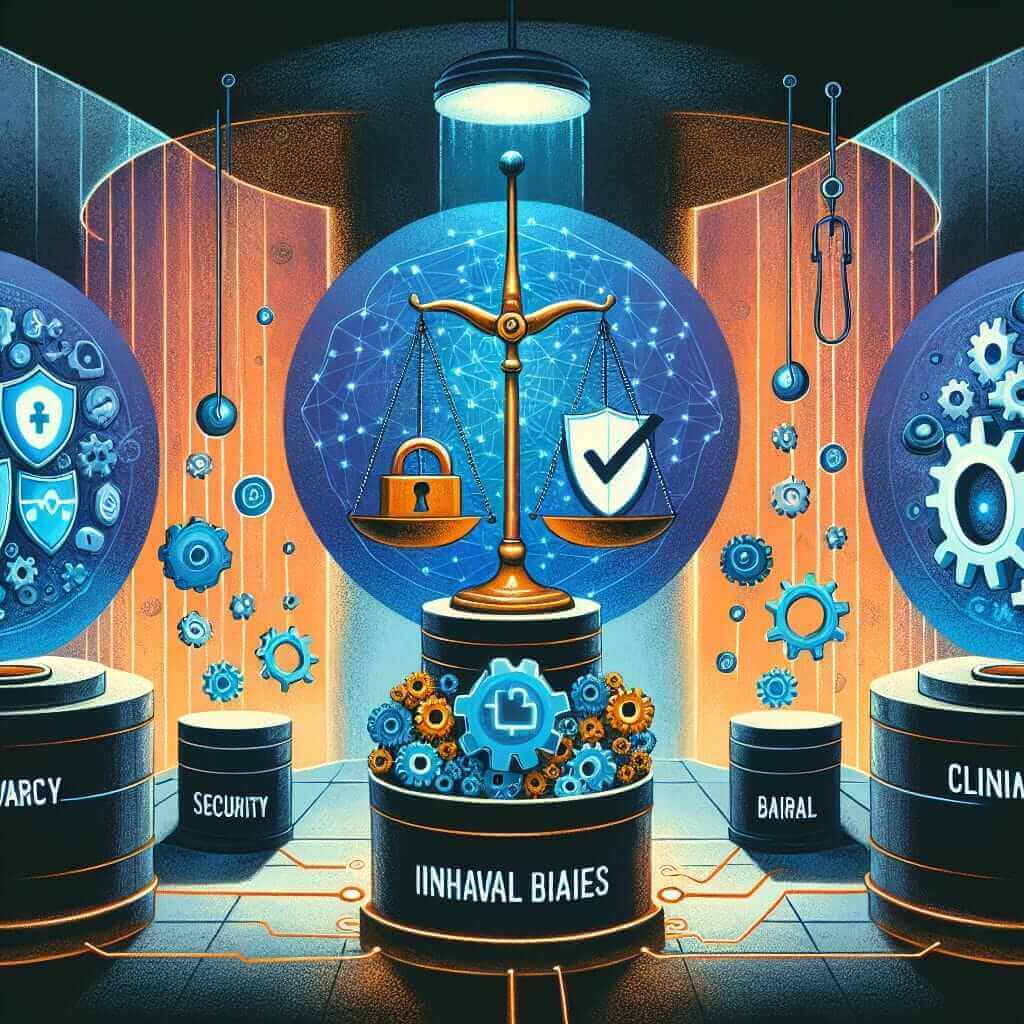The IELTS Reading section is designed to test a range of reading skills including understanding gist, detail, logical argument and recognizing writers’ opinions, attitudes and purpose. The theme of “regulating artificial intelligence in healthcare” is a popular topic due to its relevance and timeliness. This post explores the intricacies of this theme, helping IELTS candidates gain a deeper understanding and better preparation for the Reading section.
Reading Passage
Artificial Intelligence (AI) is continuously transforming the healthcare industry by improving diagnostics, personalizing treatment, and automating administrative tasks. However, with these advances come significant regulatory challenges. Understanding these challenges is crucial for ensuring the safe and effective implementation of AI technologies in healthcare systems.
Challenges of Regulating AI in Healthcare
-
Lack of Standardization: There is a significant lack of internationally recognized standards for AI systems in healthcare. This makes it difficult to ensure consistent quality and safety of AI applications.
-
Data Privacy and Security: AI systems require large datasets to function effectively. This raises concerns about data privacy and security, especially when dealing with sensitive patient information. Ensuring that AI complies with stringent data protection laws like GDPR is a considerable challenge.
-
Bias and Fairness: AI systems can inherit biases present in the data they are trained on, which can lead to unfair treatment or discrimination in healthcare. Regulating these systems to ensure fairness and equity is a substantial task.
-
Clinical Validation: Unlike traditional medical devices, AI systems are constantly evolving. This poses challenges for clinical validation and ensuring that AI applications are safe and effective over time.
-
Ethical and Legal Issues: The ethical and legal implications of AI in healthcare are complex. Issues such as accountability, consent, and transparency are critical areas that need comprehensive regulatory frameworks.

Reading Questions
Questions 1-5: Multiple Choice
-
Why is standardization a challenge for AI in healthcare?
- A. There are no standards available internationally.
- B. It ensures consistent quality.
- C. It simplifies the regulatory process.
- D. All of the above.
-
What is a significant concern regarding AI systems requiring large datasets?
- A. Data privacy and security.
- B. System efficiency.
- C. User interface.
- D. None of the above.
-
How can AI systems inherit biases?
- A. Through the developers’ coding.
- B. From the data they are trained on.
- C. From the AI algorithms themselves.
- D. From the legal frameworks.
-
Why is clinical validation of AI systems challenging?
- A. Because AI systems are constantly evolving.
- B. Due to high costs.
- C. Because of limited medical expertise.
- D. None of the above.
-
Which of the following are ethical and legal issues associated with AI in healthcare?
- A. Accountability
- B. Consent
- C. Transparency
- D. All of the above
Questions 6-10: True/False/Not Given
- AI systems require small datasets to function effectively. (False)
- Ensuring fairness in AI systems is not a regulatory concern. (False)
- The GDPR is a data protection law that AI must comply with. (True)
- AI applications in healthcare remain unchanged over time. (False)
- Ethical implications of AI in healthcare do not include consent. (False)
Answer Key:
Multiple Choice:
- A
- A
- B
- A
- D
True/False/Not Given:
- False
- False
- True
- False
- False
Common Mistakes and Tips
- Misinterpreting the Data: Many students misinterpret the data provided. It’s essential to read the passage thoroughly and understand the context before answering.
- Ignoring Keywords: Pay attention to keywords in both the passage and the questions. They can guide you to the correct answer.
- Overlooking Details: Some questions require detailed reading. Avoid skimming the passage.
Vocabulary
- Standardization (noun) /ˌstændədaɪˈzeɪʃən/: The process of implementing and developing technical standards. Example: The lack of standardization in AI makes regulation difficult.
- Bias (noun) /baɪəs/: Prejudice in favor or against something, usually considered unfair. Example: AI systems can inherit biases from training data.
- Validation (noun) /ˌvælɪˈdeɪʃən/: The action of checking or proving the validity or accuracy of something. Example: Clinical validation of AI systems is challenging.
Grammar: Complex Sentences
- What are complex sentences?: They are sentences that contain an independent clause and one or more dependent clauses.
- Example: Although AI is beneficial, it poses significant regulatory challenges. (Dependent clause: Although AI is beneficial, Independent clause: it poses significant regulatory challenges.)
Conclusion and Advice
Achieving a high score in the IELTS Reading section requires extensive practice and understanding the subtleties of the questions. To excel in your Reading test, practice regularly with topics of contemporary relevance, pay close attention to detail, and enhance your vocabulary and grammar skills. For more insight, practice tests, and reading passages, visit IELTS.NET.
Good luck with your IELTS preparation!